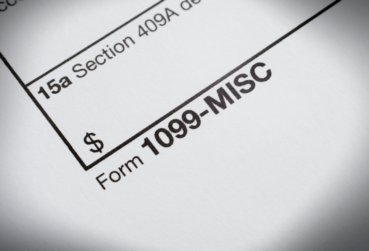Demystifying Depreciation for Business

Authored by: Nathan Cacka
Understanding Depreciation: A Key Tax Tool for Businesses
Many business owners have heard of depreciation but might wonder how it works and why it matters for tax purposes. In simple terms, depreciation is the process of allocating the cost of a long-term asset over its useful life. This ensures that businesses accurately match expenses with the periods in which the asset contributes to generating revenue.
What Qualifies as a Depreciable Asset?
An asset with a useful life of more than one year is considered a capital asset. Examples include equipment, machinery, vehicles, and commercial buildings. Unlike routine business expenses that can be deducted immediately, the cost of a capital asset must be spread out over time through depreciation.
How Does Depreciation Work?
The IRS sets rules about how depreciation is calculated and over what period. Asset lives vary depending on the type of asset:
- 3 to 10 years: Most equipment and machinery.
- 15 years: Qualified leasehold improvements or land improvements.
- 39 years: Commercial buildings.
For tax purposes, depreciation is typically calculated using one of two methods:
- Straight-Line Depreciation: The cost is spread evenly over the asset’s useful life.
- Modified Accelerated Cost Recovery System (MACRS): Allows for faster depreciation in the earlier years of the asset’s life, providing a larger upfront tax deduction.
Special Depreciation Rules
As with many tax laws, there are exceptions and enhancements to the standard rules:
- Bonus Depreciation
Bonus depreciation allows businesses to deduct a significant portion of an asset’s cost in the first year it’s placed in service. For 2024, the bonus depreciation rate is 60% of the asset's cost. However, this percentage is phasing out over time:
- 40% in 2025
- 20% in 2026
- 0% after 2026
- Section 179 Expensing
Under Internal Revenue Code Section 179, businesses can elect to expense up to $1,220,000 of qualifying assets in 2024. Unlike bonus depreciation, Section 179 is limited by your taxable income. If your deductions exceed your income, the excess can be carried forward to future years.
Impact on Asset Sales
It’s crucial to remember that depreciation affects the basis (original cost less depreciation claimed) of an asset. If you sell a depreciated asset for a gain, you may need to pay taxes on the previously claimed depreciation—a process known as depreciation recapture.
Depreciation as a Tax Planning Tool
Depreciation can be a powerful tax planning strategy. By strategically purchasing equipment or machinery, businesses can significantly reduce—or even eliminate—tax liability for the year. However, timing is critical:
- To claim depreciation for the year, the asset must be purchased and available for use (placed in service) by December 31.
- Simply placing an order or making a deposit is not sufficient.
Depreciation rules are intricate, but they offer significant opportunities for businesses to optimize their tax strategies. Consulting with a tax professional can help you navigate these rules and ensure you maximize your benefits while staying compliant with IRS regulations.
Whether you're investing in new equipment or planning for an end-of-year purchase, understanding depreciation is essential for making informed financial decisions. Have questions about how depreciation affects your business? Contact us at cnccpa.com or call (509) 663-1661. We're here to provide you with a complete financial team in your corner.
Events & Deadlines
Latest Past Events
Community Service Day
Cordell Neher & Company, PLLC 175 E Penny Rd #1, Wenatchee2024 Shred Event
Cordell Neher & Company, PLLC 175 E Penny Rd #1, WenatcheeCNC Newsletter
Subscribe and stay informed on policy changes that could have an impact on you.
Footer Contact
Check the background of your financial professional on FINRA's BrokerCheck®
Privacy & Usage: The information on the Cordell, Neher & Company, PLLC website is provided with the understanding that it should not be substituted, in any way, for consultation with a professional Certified Public Accountant, accountant, tax, legal or other competent advisor. Cordell, Neher & Company, PLLC makes every attempt to ensure that the information contained on their websites are obtained from reliable sources, but is not responsible for any errors and/or omissions or from the results obtained from the use of any information. This site contains links to servers maintained by other organizations. Cordell, Neher & Company, PLLC cannot provide any warranty regarding the accuracy or source of information found on any of these servers, the content of any file the user might use to download from a third-party site, and is not responsibility for the content found on any of these servers or for any links these servers maintain with other servers.
Avantax affiliated advisors may only conduct business with residents of the states for which they are properly registered. Please note that not all of the investments and services mentioned are available in every state. Securities offered through Avantax Investment ServicesSM, Member FINRA, SIPC, Investment Advisory services offered through Avantax Advisory ServicesSM,Insurance services offered through an Avantax affiliated insurance agency. 3200 Olympus Blvd., Suite 100 Dallas, TX 75019 972-870-6000.
Avantax financial professionals may only conduct business with residents of the states for which they are properly registered. Please note that not all of the investments and services mentioned are available in every state. Securities offered through Avantax Investment Services.SM, Member FINRA, SIPC. Investment Advisory Services offered through Avantax Advisory Services SM. Insurance services offered through an Avantax affiliated insurance agency. Method 10® is property of Avantax Wealth Management.SM All rights reserved 2020. The Avantax family of companies exclusively provide investment products and services through its representatives. Although Avantax Wealth Management does not provide tax or legal advice, or supervise tax, accounting or legal services, Avantax representatives may offer these services through their independent outside business. This information is not intended as tax or legal advice. Please consult legal or tax professionals for specific information regarding your individual situation.
The Avantax family of companies exclusively provide financial products and services through its financial representatives. Although Avantax Wealth ManagementSM does not provide or supervise tax or accounting services, Avantax Representatives may offer these services through their independent outside business. Content, links, and some material within this website may have been created by a third party for use by an Avantax affiliated representative. This content is for educational and informational purposes only and does not represent the views and opinions of Avantax Wealth ManagementSM or its subsidiaries. Avantax Wealth ManagementSM is not responsible for and does not control, adopt, or endorse any content contained on any third party website.
This information is not intended as tax or legal advice. Please consult legal or tax professionals for specific information regarding your individual situation. Investments & Insurance Products: Are not insured by the FDIC or any federal government agency- Are not deposits of or guaranteed by the bank or any bank affiliate- May lose Value
Avantax Investment ServicesSM and Avantax Advisory ServicesSM are not affiliated with CNC Financial Group, LLC.
© 2024 Cordell, Neher & Company PLLC • Designed by Pixel to Press











